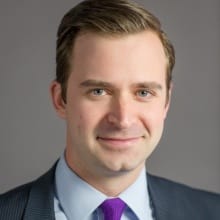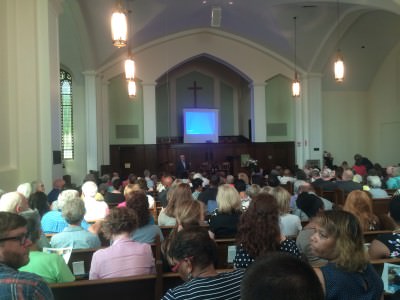
Voters in Charlotte head to the polls tomorrow–or have already cast a ballot–for primaries for mayor and city council. And even though the mayor and city council have virtually no involvement in education policy, public schools have been a popular topic during the campaigns for those offices.
The Charlotte-Mecklenburg Board of Education sets local school policy, and it receives the majority of its funding through the Mecklenburg County Board of Commissioners. At one point, the city did pay for CMS’ school resource officers, but during the recession that burden shifted to CMS.
Otherwise, the Charlotte City Council and its mayor hardly touch the topic of public schools in a meaningful way.
Yet the four Democrats vying for their party’s nomination for mayor regularly discuss CMS and public education on the campaign trail. Jennifer Roberts, a former county commission chair, has run advertisements saying “she’ll improve all schools,” while current Mayor Dan Clodfelter, a former state senator, has ads calling him “a champion of public education.”
There have even been jabs among candidates about who sends their children to CMS schools and whose kids attend private schools.
Political analysts, however, aren’t surprised the topic of strong schools has come up during the campaign. “If voters saw through that, then the politicians wouldn’t use it,” political consultant Thomas Mills told Charlotte’s WBTV. “At some point, you have to put the onus back on the voters to be informed about what their local government does.”
Eric Heberlig, a political science professor at UNC-Charlotte, told WBTV that talk about public education is particularly important in a crowded Democratic primary. “If you are a voter and you want to hear about education and your candidate isn’t talking about it, you are not likely to come to the polls.”
Moderators of some of the final debates of the campaign season brought up public education, either overtly or implicitly. Much of the conversation ties back to economic mobility in Charlotte, as well as the current community conversation around racial and socioeconomic isolation throughout the county. Half of CMS schools are considered segregated by race. A third are segregated by poverty.
CMS is beginning an intensive review of the district’s student assignment plan that will likely include an attempt to address those issues.
And that’s the lens through which the mayoral candidates see the city’s role in public education: supporting CMS’ efforts to better integrate its classrooms. No one has articulated exactly how the city should support the school district. Is that simply through the mayoral bully pulpit? Should the city council create a task force on educational isolation? Is there a mechanism to address isolation through housing policy?
There is a feeling here, particularly among public education advocates, that CMS’ student assignment review is a significant moment for the district and, more broadly, for this community. If that’s the case, it would make sense for the city’s leaders–the mayor and city council–to be more engaged in discussions about public education, even if they don’t fund it or write policy about it.
The question, which likely won’t receive an answer until next year, is whether that can be done in a meaningful way, or whether it’s just campaign rhetoric.


